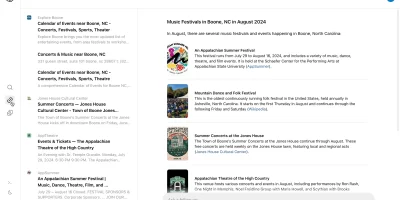
Here is something that might give developers considering the Amazon app store reason for concern: according to Business Insider, content makers can only suggest a retail price when submitting their applications, and Amazon will make the final decision on how much any particular app will cost. While ultimately it may turn out to be not such a big deal (we expect Amazon to honor suggested pricing pretty closely), it will no doubt have many second guessing the third-party app selling solution.
Obviously, the biggest impact could be on the actual developer. Amazon has agreed to give 70 percent of revenue generated or 20 percent of the suggested retail price, whichever is greater, back to the developer. This provides some protection in case Amazon decides to run a sale or promotion giving away an app for cheap or free, but if the retailer makes it habit of cutting app prices the 20 percent deal no doubt will see smaller profits than selling an app at its suggested price with a larger percentage cut for the developer.
We’ll have to wait and see how this pans out, but for now we remain cautious about Amazon’s venture into the world of apps.
[via TalkAndroid]










Hmmm…. Sadly this discourages me to publish an app to Amazon app store… :L
Lol. Amazon taking control of prices now.
They’re probably reserving the right to prevent outrageous prices. Like that business card scanner that costs twelve bucks. Or navigation software that costs over twenty dollars.
@Jay-
I love the concept of ‘outrageous prices’. As if anyone other than the developer and purchaser has the right to make that determination.
While you may say my $100 business card scanner is overpriced (and choose not to purchase), the person who spends the $$ may love the app.
Unless the one spending the $$ is your child. Let the market work. That goes for Amazon too – Get out of the way.
This was announced by Amazon several weeks ago, possibly even in the original press release. Why are you publishing old ‘news’?
Personally, I applaud this. Theyre are a lot of talented developers out there with no idea how to run a business, set prices, etc. Meanwhile, when it comes to moving products, Amazon is an expert. With a clause in place to prevent devs from getting nothing at all when they are way off the mark, I think it’s great that Amazon is going to make sure that apps are priced in a way that makes sense for the whole market, and not to just one dude who may be an expert at coding and design, but knows nothing about economics and sales.
I can only assume that Amazon is going to use Android for some new tablet/ereader they are intending to release? Otherwise this is gunna tank.
@Khalid because he only just found it and the rest of us didn’t know
@Jaylan –
I don’t think it has anything to do with ‘outrageous prices’, more likely they want to be able to do things like category-wide sales, or buy-one-get-one-free deals. These rules mean that if they give your 99 cent app away for free as a promotion, you’re still getting 20 cents out of it in the end.
This seems that it will only benefit the developer, as the developer still get the 80 % of the suggested price even if amazon sells it at a lower price. But it may get better profit if amazon sees fit to sell it at a greater price.
Amazon is doing just what is expected in a free market system like ours. It is against the law for companies, who make other products we buy in stores, to force a price fix on their products. If Amazon wants to sell a PlayStation, or a cell phone or a copy of Microsoft Office at a discount (or for more than what other stores are selling it for, for that matter) then they have that right. It helps them stay competitive in their business since they are not the only app store around and will be selling apps that do many of the same thing that other apps do from other app stores. It also protects us, the consumer, from developers getting together to manipulate the market and create artificially high prices for their apps. The fact that book publishers have been able to get away with forcing their eBook prices on book stores makes them a type of cartel in my opinion.
This isn’t really anything new for Amazon. All of their products are at a floating free-market price that attempts to maximize profit for everyone. Digital distribution only makes this even more lucrative, since there’s a very low price-per-unit.
Their mp3 store has a few pricing tiers that they switch between based on demand, and the same thing goes for independent ebooks. Content creators can recommend which tier they go into but it’s up to Amazon to determine the final pricing. It’s worked very well for them so far.
Does anyone have a link to reliable information about how well apps/games are selling on Android. I have no idea.
@Quasar
“It is against the law for companies, who make other products we buy in stores, to force a price fix on their products.”
You’re forgetting that doesn’t apply to consignment goods, which is how Android apps are classified since Amazon doesn’t actually purchase product prior to the sale to the consumer. The price fixing laws only apply if the ‘reseller’ has purchased, and obtained the rights to re-sell the product in question. All they are doing is acting as a consignment agent here. That means they are allowed to do anything their consignment contract specifies, which in this case is to give the developer exactly what they choose in the contract. If a dev doesn’t like it, they don’t put their app in the Amazon market.
@DroidGnome Thanks for sharing that information. I see how the two systems are different now. It makes more sens as to why the developers (and book publishers) have more control of pricing in the digital market. It seems to me that these different consignment laws have the potential to cause problems for the consumer when it comes to price gouging.